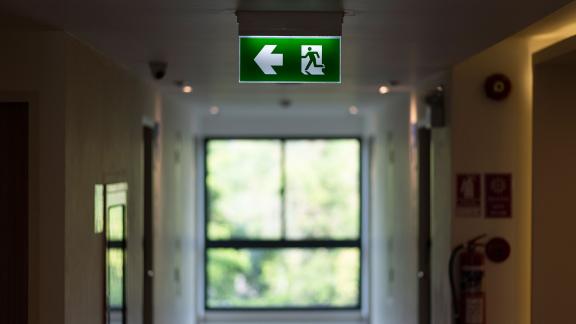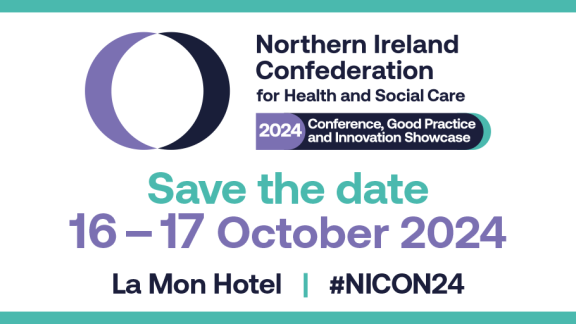Recovering cancer services through system working

MSD’s director of oncology explores how partnership working across systems can support efforts to restore cancer services to maximum capacity and improve patient outcomes.
Huge strides were made in reopening cancer pathways, so many of which were constricted due to the initial wave of COVID-19. This latest wave and new more infectious strain seem to be unravelling all of that good work and continue to have a profound impact on cancer services across the UK. While the health system adapted to the unprecedented demands during the pandemic, significant pressures were placed on cancer services, in which many routine procedures were paused, symptoms were left unchecked, and A&E attendance dropped to the lowest levels since records began.
This was the backdrop to the recent roundtable discussion where MSD came together with several system leaders, including healthcare professionals, service managers and patient and charity representatives, as part of the NHS Reset campaign to identify system-working solutions to address the key obstacles the NHS is currently facing in restoring cancer services to maximum capacity and improve patient outcomes.
The fear factor
Late diagnosis of cancer was already a significant problem pre-COVID-19. The virus has compounded the problem considerably and quite possibly, masked the extent of the problem through its impact on data gathering in recent months.
One of the compounding factors in cancer presentation was the publics’ quite understandable fear of hospital-acquired infection combined with a genuine desire not to burden the system with what some viewed as “their problem”. This was particularly true for lung cancer, where there was the added conflation of coughing as a symptom, which saw referrals fall by as much as 75 per cent in some parts of the country.1 While urgent cancer referrals were back up to 80 per cent of pre-pandemic levels in early autumn, lung cancer referrals have unfortunately, not recovered as quickly.
That is why to mark the end of Lung Cancer Awareness Month (November 2020), MSD was proud to launch, in partnership with Northern Cancer Alliance and Greater Manchester Cancer, alongside UK Lung Cancer Coalition (UKLCC), Lung Cancer Nursing UK, Roy Castle Lung Cancer Foundation and Mesothelioma UK, the Do It For Yourself campaign to improve earlier presentation of possible lung cancer patients. Recognising that we’ve become a nation of ‘DIYers’ in recent months, we hope that the campaign will encourage people to engage earlier and may therefore ease some of the burden on already stretched emergency routes and secondary care.
There is a need to ‘set the record straight’ among the patient community, allowing people to make informed choices about accessing cancer services. While the advent of the COVID-19 vaccine may ease some of the anxiety, more must be done to understand and combat both psychological and local barriers to pursuing health-seeking behaviour. What has also become clear in recent weeks is that the virus can rapidly surge and cause significant pressure on the system again as patients present with symptoms. The shadow this new wave will cast over cancer is, sadly, likely to be a long one.
The importance of joint system working
Robust and resilient health systems can better respond and adapt to challenges and crises such as a pandemic. They are able to come together to collaborate effectively across disciplines and sectors towards a common goal. The speed and scale with which COVID-19 emerged highlighted existing fragmentations in the health system and ways these can impair our ability to respond effectively in a crisis.
While it was clear from the discussion that there is certainly no “one size fits all” solution, taking a multidisciplinary, collaborative approach to transition from disparate services to closer system working will be integral to achieving the best outcomes for cancer patients as we move through the crisis.
There are opportunities to learn from existing work done in different areas across the country and refine how these relationships can work most productively. Collaborative working can help improve cancer care, but we recognise that more must be done to understand which models work best. Cancer alliances, for example, cover different configurations of integrated care systems.
In some cases, co-terminosity, whereby a local authority directly maps to a health authority has yielded beneficial results. Kent and Medway for example, where the alliance has the same footprint as the STP and the clinical commissioning group (CCG), has seen a dramatic improvement in cancer performance over the last two years. This demonstrates the importance of involving the cancer alliance in decision-making elements within the integrated care system (ICS) for good service provision.
While co-terminosity is desirable and the role of cancer alliances ought to be maximised, they do not always follow the boundaries of specialised commissioning areas, CCGs or ICSs and therefore it was felt by some that it would be challenging to map everything at an ICS level.
As such, it was recommended that NHS England commission research on how cancer alliances and ICSs/STPs can work together in light of their (ICS) statutory powers, with a focus on what best practice looks like and the impact of different configurations. This could guide future decisions on co-terminosity and governance.
1 UK Lung Cancer Coalition, COVID-19 Matters
David Long is director of oncology at MSD UK.



